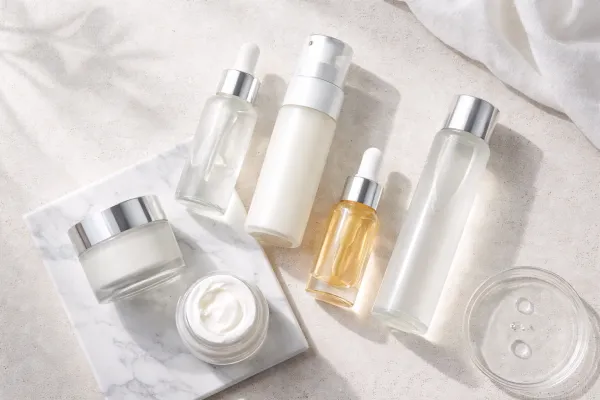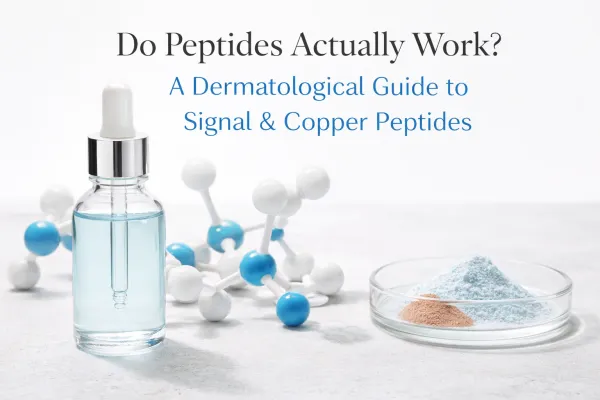Effective Methods on How to Treat Dark Spots on Darker Skin for a Radiant Complexion
Discover effective ways to treat dark spots on darker skin for a radiant complexion. Get glowing skin today!

Dark spots, also known as hyperpigmentation, can be a common concern for individuals with darker skin tones.
These spots can arise from various factors such as sun exposure, hormonal changes, or skin injuries.
Understanding how to treat dark spots on darker skin is crucial for achieving a bright and even complexion.
In this article, we will explore effective methods to address these spots, including skincare routines, dietary tips, over-the-counter treatments, and professional options.
Key Takeaways about How to Treat Dark Spots on Darker Skin
- Dark spots can be caused by sun exposure, hormones, and skin injuries.
- Using sunscreen daily is essential to prevent dark spots from worsening.
- Retinoids and vitamin C are effective ingredients for treating dark spots.
- Professional treatments like laser therapy can help with stubborn spots.
- Maintaining a healthy diet and staying hydrated supports overall skin health.
Understanding Dark Spots on Darker Skin

What Causes Dark Spots?
Dark spots, or hyperpigmentation, can pop up for a bunch of reasons.
They often happen when our skin produces too much melanin, the pigment that gives our skin its color. Here are some common culprits:
- Sun exposure: Spending too much time in the sun can lead to dark spots, especially on areas like our face and hands.
- Hormonal changes: Things like pregnancy or taking certain medications can trigger dark spots, often seen as melasma.
- Inflammation: If we have acne or other skin injuries, they can leave behind dark spots once they heal.
How Melanin Affects Skin Tone
Melanin is our skin's natural protector against UV rays.
When we get too much sun, our skin reacts by producing more melanin, which can lead to those pesky dark spots.
It’s like our skin’s way of saying, "Hey, I need some protection!" But sometimes, this process goes a bit overboard, resulting in uneven patches.
Common Misconceptions About Dark Spots
There are a few myths floating around about dark spots that we should clear up:
- Only fair-skinned people get dark spots: Nope! Anyone can develop them, but darker skin types might experience different forms, like post-inflammatory hyperpigmentation.
- Dark spots are only caused by the sun: While sun exposure is a big factor, hormonal changes and skin trauma also play a role.
- You can’t get rid of dark spots: Not true! With the right treatments and skincare routine, we can significantly reduce their appearance.
Remember, understanding our skin is the first step to treating it right!
Everyday Skincare Routine to Combat Dark Spots
When it comes to tackling dark spots on darker skin, we all want to glow, right? Here’s how we can set up a simple yet effective skincare routine that helps combat those pesky spots.
Cleansing and Exfoliating Tips
First things first, we need to keep our skin clean.
We should look for products that contain fruit acids like AHAs, which help to gently exfoliate and brighten our skin. Here are some tips:
- Use a gentle cleanser twice a day.
- Exfoliate 2-3 times a week with a mild scrub or enzymatic exfoliant.
- Avoid harsh scrubs that can irritate our skin.
Importance of Moisturizing
Next up, moisturizing!
Keeping our skin hydrated is super important. A good moisturizer can help our skin look fresh and radiant. Here’s what we should remember:
- Choose a moisturizer that suits our skin type.
- Look for ingredients like hyaluronic acid or glycerin for hydration.
- Don’t skip this step, even if our skin feels oily!
Choosing the Right Products for Darker Skin
Finally, let’s talk about products.
We need to be smart about what we put on our skin. Here’s a quick list of ingredients to look for:
- Vitamin C: Brightens and evens out skin tone.
- Azelaic Acid: Helps reduce dark spots and is great for sensitive skin.
- Retinol: A powerful ingredient that can help with hyperpigmentation.
Remember, consistency is key! Sticking to our routine will help us see results over time. Let’s embrace our journey to radiant skin together!
The Role of Diet and Lifestyle in Skin Health
Foods That Promote Skin Radiance
When we think about our skin, we often forget that what we eat plays a huge role in how it looks.
Eating a balanced diet can really help our skin glow!
Here are some foods we should consider adding to our plates:
- Fruits and Vegetables: Rich in vitamins and antioxidants.
- Nuts and Seeds: Great sources of healthy fats.
- Whole Grains: Help maintain stable blood sugar levels.
Hydration and Its Impact on Skin
Staying hydrated is super important for our skin.
Water helps flush out toxins and keeps our skin looking fresh. We should aim for at least 8 glasses a day! If we find it hard to drink plain water, we can try:
- Herbal teas
- Infused water with fruits
- Eating water-rich foods like cucumbers and watermelon
Lifestyle Habits to Avoid for Clear Skin
To keep our skin clear, there are some habits we should try to avoid. Here’s a quick list:
- Skipping Sunscreen: Protecting our skin from the sun is a must!
- Overindulging in Alcohol: It can dehydrate our skin.
- Eating Too Much Sugar: High sugar can lead to breakouts.
Remember, taking care of our skin is a journey, not a race. Small changes in our diet and lifestyle can lead to big improvements over time!
Exploring Over-the-Counter Treatments

Top Ingredients to Look For
When it comes to treating dark spots, we’ve got a few must-have ingredients that can really make a difference. Here’s a quick list:
- Vitamin C: Brightens skin and reduces dark spots.
- Kojic Acid: Known for its skin-lightening properties.
- Retinol: Helps with cell turnover and fades discoloration.
How to Use OTC Products Safely
Using over-the-counter products can be super effective, but we need to be careful. Here are some tips:
- Patch Test: Always do a patch test before applying a new product to your face.
- Follow Instructions: Stick to the recommended usage to avoid irritation.
- Moisturize: Keep your skin hydrated to help with any dryness from treatments.
When to Expect Results
Patience is key!
Most of us can expect to see some improvement in about 4 to 12 weeks, depending on the product and our skin type. Consistency is crucial for the best results.
Remember, while over-the-counter treatments can be effective, they might not work for everyone. If we don’t see results, it might be time to consult a dermatologist for more tailored options.
In summary, exploring over-the-counter treatments can be a great first step in our journey to a more radiant complexion.
With the right ingredients and a little patience, we can tackle those pesky dark spots together!
Professional Treatments for Stubborn Dark Spots
When it comes to tackling those stubborn dark spots, we’ve got some solid options to consider. Professional treatments can really make a difference! Here’s what we can explore:
Laser Treatments: What to Know
Laser treatments are like the superheroes of dark spot removal.
They use focused beams of light to target and break up the pigment in our skin. Some popular types include CO2 and Fraxel lasers.
Just remember, it’s super important to consult a dermatologist first to find the right one for our skin type and avoid any unwanted side effects.
Chemical Peels for Darker Skin
Chemical peels can also be a game-changer.
They work by applying a solution that exfoliates the top layer of skin, helping to fade dark spots. We should look for peels that are safe for darker skin tones to prevent any irritation or further discoloration.
Here are some key ingredients to look for:
- Glycolic acid
- Salicylic acid
- Lactic acid
Consulting a Dermatologist
If over-the-counter products aren’t cutting it, it might be time to see a dermatologist.
They can prescribe stronger treatments like hydroquinone, which slows down pigment production. It’s crucial to get a professional opinion to ensure we’re using the right products for our skin type.
Remember, treating dark spots is a journey, and it’s all about finding what works best for us!
Natural Remedies and DIY Solutions
When it comes to treating dark spots on darker skin, we can explore some natural remedies that might just do the trick. Here are a few options we can try at home:
Home Ingredients That Help
- Lemon Juice: This is a popular choice because of its citric acid and vitamin C, which can help lighten dark spots. Just remember to use it carefully, as it can make our skin sensitive to the sun.
- Papaya: We can mash ripe papaya and apply it as a mask for about 15-20 minutes. It’s known for its skin-brightening properties.
- Turmeric and Honey Mask: Mixing these two can create a powerful mask that not only helps with dark spots but also nourishes our skin.
Creating Your Own Face Masks
- Lemon and Honey Mask: Mix equal parts of lemon juice and honey, apply it to the dark spots, and leave it on for 20 minutes before rinsing.
- Aloe Vera Gel: Applying fresh aloe vera gel directly to the skin can soothe and lighten dark spots over time.
- Yogurt and Oatmeal Scrub: Combine yogurt with oatmeal to create a gentle scrub that can exfoliate and brighten the skin.
Precautions with DIY Treatments
- Always do a patch test before trying any new ingredient to avoid allergic reactions.
- Avoid using lemon juice if we plan to be in the sun, as it can cause irritation.
- If we notice any adverse effects, it’s best to stop using the treatment immediately.
Remember, consistency is key! Natural remedies may take time to show results, so we should be patient and keep up with our skincare routine.
By incorporating these natural solutions into our skincare routine, we can work towards achieving a more radiant complexion while being gentle on our skin.
Preventing Dark Spots Before They Start
Sun Protection Strategies
To keep our skin looking fresh and bright, we need to protect it from the sun.
This means slathering on a broad-spectrum sunscreen with at least SPF 30 every day, even when it’s cloudy.
UV rays can really mess with our skin, causing those pesky dark spots to pop up. So, let’s make it a habit to apply sunscreen daily!
Daily Habits for Spot-Free Skin
Here are some easy habits we can adopt to help prevent dark spots:
- Stay hydrated: Drinking plenty of water keeps our skin plump and healthy.
- Eat a balanced diet: Foods rich in vitamins and antioxidants can help our skin glow.
- Avoid picking at our skin: This can lead to inflammation and dark spots, so let’s keep our hands off!
Understanding Your Skin Type
Knowing our skin type is super important. It helps us choose the right products and routines. Here’s a quick guide:
| Skin Type | Characteristics | Best Products |
|---|---|---|
| Oily | Shiny, prone to acne | Oil-free moisturizers |
| Dry | Flaky, tight feeling | Hydrating creams |
| Combination | Oily in some areas, dry in others | Balanced formulas |
| Sensitive | Easily irritated, redness | Gentle, fragrance-free products |
By taking these steps, we can help keep our skin clear and radiant. Remember, prevention is key!
Wrapping It Up: Your Path to Radiant Skin
Treating dark spots on darker skin doesn’t have to be a mystery.
With the right products like retinoids, vitamin C, and even some in-office treatments, you can really make a difference.
Remember, it’s all about being consistent and patient with your skincare routine. Don’t forget to protect your skin from the sun, too! A good sunscreen can be your best friend in keeping those spots at bay.
If you ever feel stuck, don’t hesitate to chat with a dermatologist. They can help you find the best plan for your skin. Here’s to glowing, beautiful skin!




